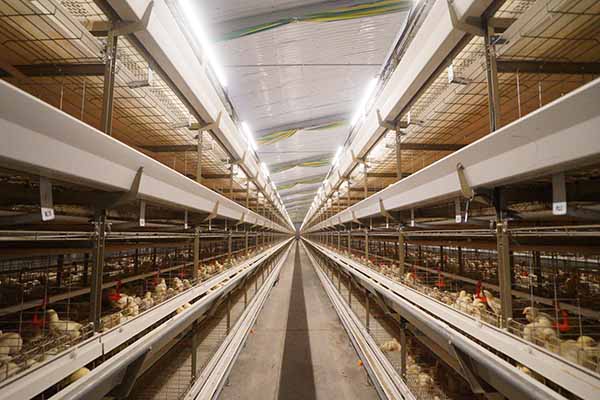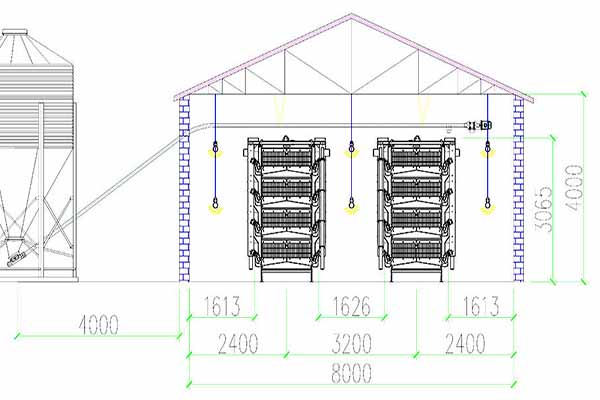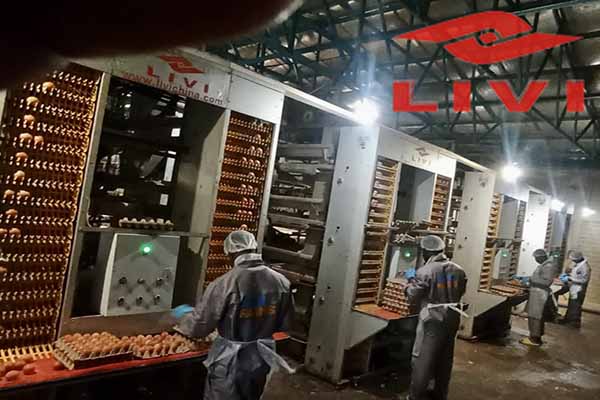Uganda Chicken Farm Fine Management Methods: A Practical Guide
Time : 2025-04-26
Chicken farming is a vital component of the agricultural industry in Uganda. With the growing demand for poultry products, efficient farm management is key to achieving success. In this article, we will delve into some fine management methods for Uganda chicken farms that can help you enhance productivity and profitability.
Understanding Fine Management in Chicken Farming
Fine management in chicken farming involves a comprehensive approach to ensuring the health, growth, and overall welfare of your flock. It’s all about paying attention to details and adopting strategies that promote optimal production. Let’s explore some essential management methods that can help you elevate your Uganda chicken farm’s performance.

1. Selecting the Right Breed
Choosing the appropriate breed is the first step towards successful chicken farming. In Uganda, it’s crucial to select breeds that are well-suited to the local climate and environmental conditions. Local breeds like the Gongo or Ankole can withstand heat and are more disease-resistant compared to imported breeds. Additionally, consider the breed’s growth rate, laying capacity, and overall health when making your decision.
2. Proper Feeding Practices
The right diet is vital for healthy chicken growth and egg production. Ensure that your birds have access to a balanced diet, including a mix of grains, protein, vitamins, and minerals. In Uganda, you can use locally available feed ingredients such as corn, soybean meal, and cottonseed cake. Here are some feeding tips to keep in mind:
- Free-choice feeding: Allow your chickens access to feed at all times, particularly for growing chicks and layer hens.
- Water availability: Fresh, clean water should be available to the birds at all times.
- Regular weight checks: Keep track of your birds’ weight to ensure they are receiving adequate nutrition.
3. Creating an Ideal Environment
The environment plays a significant role in chicken health and productivity. Here are some tips for creating an ideal environment for your Uganda chicken farm:
in chicken health and productivity. Here are some tips for creating an ideal environment for your Uganda chicken farm:
- Adequate ventilation: Proper air circulation is essential for preventing diseases and maintaining comfortable temperatures for the chickens.
- Lighting: Provide adequate lighting to simulate day and night cycles, which can impact egg production. In Uganda, consider using solar-powered lighting solutions to minimize electricity costs.
- Sanitation: Regularly clean and disinfect your chicken coop to prevent the spread of diseases. This includes removing droppings, replacing soiled bedding, and maintaining clean water sources.
4. Disease Control and Prevention
Disease control is a critical aspect of fine management in chicken farming. Follow these steps to ensure your flock remains healthy:
- Regular veterinary check-ups: Schedule regular veterinary visits to monitor your chickens’ health and receive advice on vaccination schedules.
- Sanitization routines: Implement a strict sanitization routine for your farm, including the use of disinfectants to eliminate pathogens.
- Biosecurity measures: Implement biosecurity measures to prevent the introduction of diseases, such as segregating new birds and limiting human and animal contact with your flock.
5. Managing Litter and Waste
Proper litter management is essential for maintaining a clean and healthy environment in your chicken coop. Follow these steps to manage litter and waste effectively:
- Regular removal: Remove soiled litter regularly to reduce ammonia levels and improve air quality.
- Composting: Compost the removed litter to create organic matter that can be used for soil enrichment in your farm.
- Disposal: Dispose of waste materials in an environmentally friendly manner, following local regulations and guidelines.
6. Training and Empowering Your Staff
A well-trained and motivated staff is crucial for the success of your chicken farm. Invest in regular training sessions for your employees to enhance their knowledge and skills in chicken farming. Empower them to make informed decisions and provide them with the necessary tools and resources to perform their tasks effectively.
Conclusion
Implementing fine management methods in your Uganda chicken farm is essential for achieving sustainable and profitable results. By focusing on breed selection, proper feeding, creating an ideal environment, disease contr ol, waste management, and staff training, you can enhance your farm’s productivity and reduce costs. Remember that successful chicken farming is a continuous process that requires attention to detail and a commitment to excellence.
ol, waste management, and staff training, you can enhance your farm’s productivity and reduce costs. Remember that successful chicken farming is a continuous process that requires attention to detail and a commitment to excellence.











